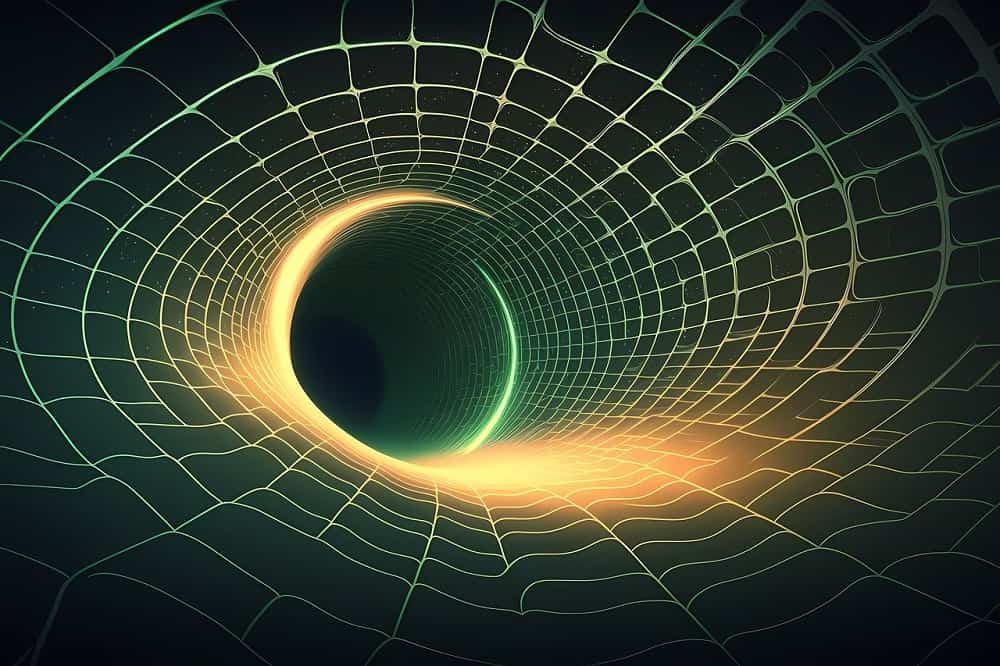Time, the unseen force that governs our existence, defies conventional understanding. It exhibits the peculiar trait of slowing down in the presence of high velocities and massive celestial bodies. At the cusp of light's velocity, time grinds to an absolute halt, as if frozen in the gravitational embrace of a black hole's event horizon. Astonishingly, at the enigmatic singularity, time ceases to have any meaningful existence, leaving us to ponder the profound mysteries of the cosmos.
Approximately four centuries in the past, Sir Isaac Newton embarked on the journey of formulating his groundbreaking principles of classical mechanics. In this intellectual odyssey, he ventured into a realm where time and space were deemed absolutes, unwavering and unyielding in their nature. This profound assumption asserted that, irrespective of one's celestial location within the vast cosmos, the passage of time remained invariant. Therefore, a solitary second experienced on Earth held an indomitable equivalence to the duration of a second unfurling upon any other celestial body in the boundless expanse of the universe.
Einstein, however, revolutionized this age-old notion. His theory of relativity boldly proclaimed that only the speed of light maintains its constancy, while the very essence of space and time, interwoven in a cosmic fabric, becomes remarkably relative. This profound insight unveiled a captivating reality - what may appear as a fleeting second in the vicinity of a menacing black hole could, in fact, span millennia when observed from the vantage point of our beloved Earth. That is, a single second near the enigmatic embrace of a black hole might unfurl into thousands of Earthly years. Hence, it is imperative to embrace the profound notion that time is not merely the monotonous ticking of a clock; rather, it is cosmic dance, an incredible reminder that the universe, with its boundless wonders, never ceases to astonish.
Read:-What Would Happen If A Black Hole The Size Of A Pea Grain Fell To Earth
Time behaves in some really fascinating ways in different situations. These phenomena are a result of our current understanding of physics, particularly through Albert Einstein's theories of special and general relativity. Here's a breakdown of the concepts we mentioned:
Time Dilation at High Speeds: According to Einstein's theory of special relativity, as an object's speed approaches the speed of light, time for that object appears to slow down relative to a stationary observer. This effect becomes more significant as the object's speed gets closer to the speed of light.
Time Dilation around Massive Objects: In the theory of general relativity, massive objects like planets, stars, and black holes create a curvature in spacetime. This curvature affects the passage of time, causing time to pass more slowly in stronger gravitational fields. This is known as gravitational time dilation. For example, time on Earth's surface runs slightly slower than time in space, as confirmed by experiments involving atomic clocks on satellites.
Time Stopping at the Speed of Light: According to the principles of special relativity, as an object with mass approaches the speed of light, its relativistic mass increases, and the energy required to accelerate it further also increases. As the object's speed approaches the speed of light, its relativistic mass becomes infinite, requiring an infinite amount of energy to reach or exceed the speed of light. This implies that time would seem to stop for the object at the speed of light.
Time at the Event Horizon of a Black Hole: The event horizon of a black hole is the boundary beyond which nothing, not even light, can escape due to the immense gravitational pull. Near the event horizon, gravitational forces are extremely strong, causing significant time dilation. As an observer approaches the event horizon from a distance, their time appears to slow down from the perspective of a distant observer.
Read:-What is Wormhole? Do Wormholes Exist in the Real World?
Time and the Singularity: The singularity at the center of a black hole is a point of infinite density where our current understanding of physics breaks down. At this point, the laws of physics, as we know them, cease to provide meaningful predictions, including the behavior of time. As a result, our current theories cannot accurately describe what happens at the singularity, including the concept of time.
These effects might seem counterintuitive, but they've been confirmed through various experiments and observations, such as the time dilation experienced by particles in particle accelerators and the synchronization of atomic clocks on GPS satellites. The weird nature of time is just one of the many intriguing aspects of the universe that modern physics seeks to explain.














0 comments:
Post a Comment